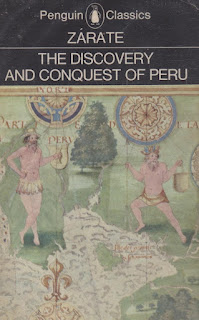“I want
To do with you what spring does with the cherry trees.”
While the countries of the South America are different, the language(s) - Portuguese and Spanish - act as the one thread that connects all its people and the literature they've produced remains the most evocative of human life in any form.
To me, Marquez actually opened up this world. It lead me to read about the history of these people - the struggles, their colorful culture, their poems and writings - all have the same story of human life expressed more colorfully and mystically than anywhere else. Marquez lead me to Mario Vargas Llosa, Borges, Carlos Fuentes, Lorca and many others. It was a world of giants about whom I've never heard of till then.
“Tonight I can write the saddest lines
I loved her, and sometimes she loved me too.”
The 1990's ended for me with the discovery of the Latin American literature, their culture and their art. Frida became a personal favorite - who has to be worshiped alongside the pantheon of the world's greatest artists. It is from here I found Neruda - his politics and poems.
Chile has had a violent history - with little democracy and a few coups followed by a dictatorial regime and then the Shining path - followed by a corrupt democracy and what not. In fact, it was Isabel Allende who lead me to the story of her uncle - Salvatore Allende - and whose Chile in the early 1970s which hosted Neruda. The politics of Neruda is as much as part of him as his poems.
“I love you without knowing how, or when, or from where,
I love you simply, without problems or pride:
I love you in this way because I don’t know any other way of loving.”
So it was a surprise to come across this book - 'Twenty Love poems and the Song of Despair' - which was full of love poems. Is it possible for a Communist and a diplomat - to write anything that tender and express himself so much in words that just tug a part of your heart. Along with the '100 Love sonnets', these poems - to me - rank as the highest form of writing achieved.
“I love you as certain dark things are to be loved,
in secret, between the shadow and the soul.”
To say that this is the poem book which I've read the most is an understatement. I've read it in full, individual poems and one poem in Spanish once to see if I can understand anything. The writing is exquisite and the poems are full of personal references - it is difficult to read them without getting into the poet's head and live there for a while.
It takes a special kind of madness to write or read poetry. Without this madness, poetry resembles words - not feelings. Neruda's poetry is full of this madness. If living life every day cannot bring in this madness, it is impossible to feel it inside. Neruda expresses the hopelessness of this and the madness of the same.
“Tonight I can write the saddest lines
I loved her, and sometimes she loved me too.”
Love is a very narcissistic emotion. Its impossible for anyone who does not love one's self to love another. That narcissistic part of it is what make one write - thinking someone might read it someday - and this vanity of human mind is what gets exposed in these poems. Neruda does not write paeans to his love lady - he writes to love and for himself.
The only other poetry books - in fact, there were two - I consider to be on par with these are 'Sonnets from the Portuguese' by Elizabeth Barrett Browning and 'Collected Poems' by Emily Dickinson. It is no coincidence that both of these were women.
Emily Dickinson - whom I consider to be the greatest poet in English - has the voice of the lost girl left alone in the world. That is a voice you hear too often in women's writings. So it is apt that this ends with a great favorite of mine by Emily.
"Wild nights - Wild nights!
Were I with thee
Wild nights should be
Our luxury!
Futile - the winds -
To a Heart in port -
Done with the Compass -
Done with the Chart!
Rowing in Eden -
Ah - the Sea!
Might I but moor - tonight -
In thee!"




No comments:
Post a Comment